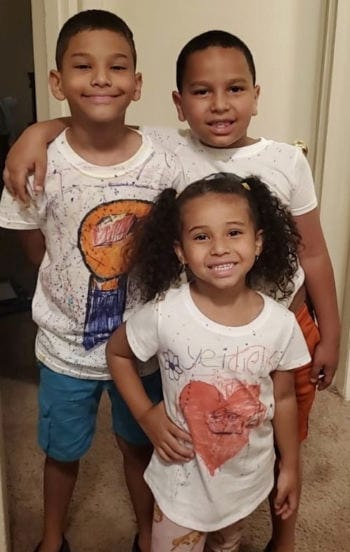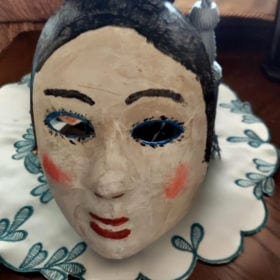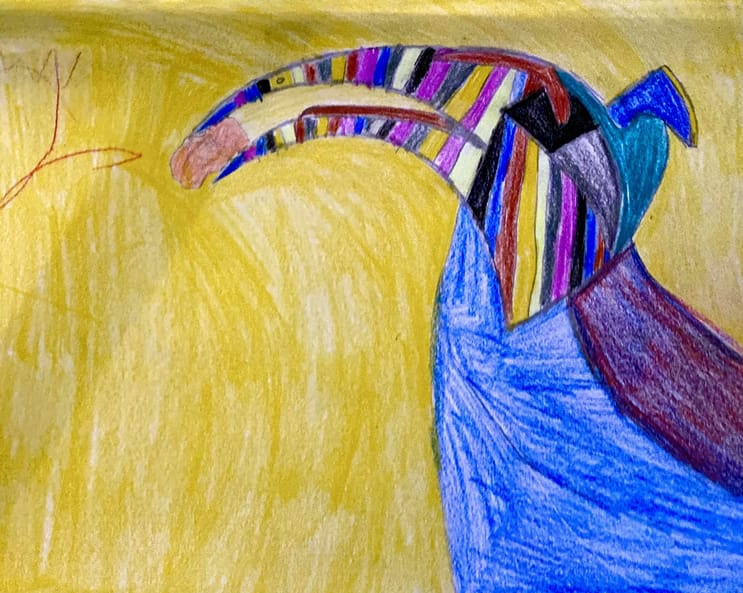February 1, 2021 Community Stories
Coping with COVID through Boxes of Art and Dancing in Kitchens
Prison, believe it or not, is where The Performance Project traces its humble beginnings. There, Julie Lichtenberg and her artistic partner led theater and movement workshops for incarcerated people. Community members were invited into the prison for performances.
“Participants told their stories in deep and reflective ways,” said Lichtenberg, noting that they melted stigmas and shifted audience’s assumptions about their lives.

Now, twenty years later, The Performance Project brings together people of many ages and ancestries to create safe spaces for young people to build skills and express themselves through the arts. Julie Lichtenberg, Cristóbal Silva San Martín, and James Arana co-direct the Holyoke-based organization.
One program, First Generation, brings together young adults who identify as “first generation.” They may be the first in their family to grow up in the U.S., to speak English, to graduate high school or college, or many other firsts. The young people and professional artists train together and create theater performances based on their conversations and self-discoveries.
They hail from places including Nepal, Holyoke, Puerto Rico, South Sudan, and Tanzania. “They come together to discover their common ground and learn about their different cultures. The First Generation community supports them in identifying their life goals and in dreaming big,” said Lichtenberg.
Back in March 2020, Stand Tall, Mi Gente!, a First Generation performance, was in full swing when the COVID pandemic abruptly shut it down.
The Performance Project confronted hard questions about its ensemble and its Ubuntu arts community. The latter program brought together younger children four days per week at Lt. Clayre P. Sullivan School in Holyoke for mentoring, homework support and activities from drumming to dance to storytelling.
“The biggest crisis for us was: if we couldn’t meet physically, how would we stay connected?” Lichtenberg said.
Two grants from the Community Foundation’s COVID-19 Response Fund in 2020 provided funding for The Performance Project to re-invent its programs and infused much-needed, unrestricted dollars for its operations.
After addressing needs for phones, computers, and internet connections for the youth they served across Hampshire County, they had an epiphany.


Lichtenberg said, “We came up with the idea of ‘art-in-the-box.’ We designed art projects and delivered them to households in a box. Across the top of the box, it would say, ‘Open Tuesday’ or ‘Open Thursday.’ They’d hold onto the boxes with excitement until we were all on Zoom together. Then we’d all open the boxes and do the projects together. It was really successful! Several projects, such as t-shirt painting, involved the whole family on Zoom.”
Aware that the families were struggling financially, Response Fund dollars also went toward care packages, which included masks, sanitizer, grocery gift cards, books, and art supplies.
“What the COVID grant allowed us to do was deliver physical, tangible gifts and necessities. There’s no way to overestimate the value of that. It’s a different level of caring that happens.”
A highlight, said Lichtenberg, was family involvement.
“It was amazing for families and mentors to spend time doing art projects while we all had pizza together—20 families and nine mentors—on Zoom. One of the families was in Puerto Rico and they got pizza too! Mentors were in Amherst, Northampton, Springfield, and Holyoke. We were able to hire two musicians to perform and people were dancing in their kitchens.”